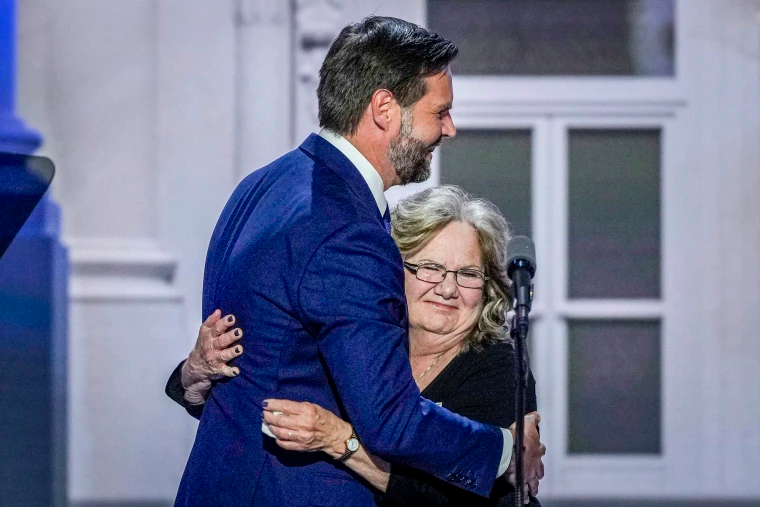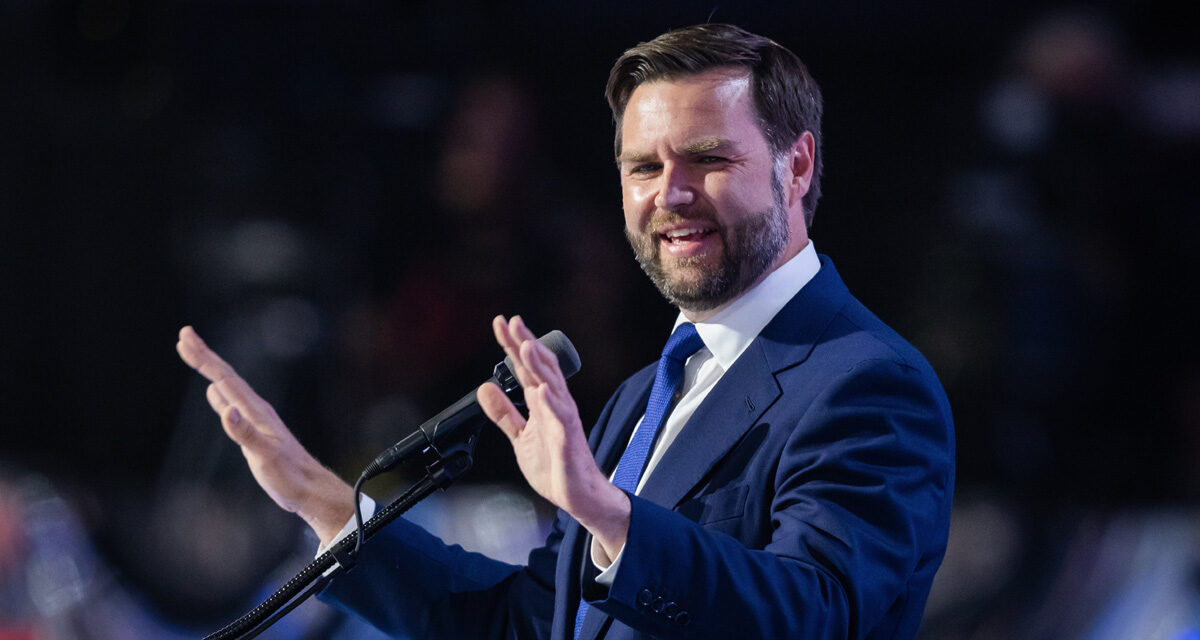Vance's case proves that you can break out of a totally dysfunctional family - you can go to college, you can get a degree, and you can work hard to become a senator and then vice president.
On the edge of a lost war. Written by Ivana Greco.
In a turbulent international climate, with hot and cold wars raging between the United States and its allies, as well as hostile foreign nations like North Korea, Russia, and Iran, it is easy to forget that America is also fighting a deadly battle: fentanyl, the prescription drug the war waged by opioids, heroin, and the like on average American families. And we stand to lose.
In 2017, President Trump declared the opioid crisis a "national public health emergency" "nobody has seen anything like what's happening."
But since the declaration, more than 454,000 opioid-related deaths have been recorded by public health officials. Just think about it:
during the Second World War, slightly less, approximately 405,000 soldiers fell / died on the front.
Or, as conservative economist Oren Cass recently noted, "Americans are now dying of drug overdoses at a higher rate than Russians died of alcohol use disorders in the worst years of post-Soviet Russia."
However, deaths by themselves do not indicate the number of actual victims.
It is estimated that between 2011 and 2021, more than 320,000 American children will lose at least one parent to drug overdose; many were left orphans. As Charles Fain Lehman of the Manhattan Institute writes,
"based on the results, it appears that policymakers have more or less given up" on the fight against the drug war.
Against a dismal record of near-constant defeats, Senator JD Vance's campaign scored a symbolic victory.

Photo: J. Scott Applewhite/AP
During the Republican National Convention, he dedicated time to honoring his mother, Beverly Aikins. Ms. Aikins has struggled with drug and alcohol abuse for many years, but has been clean and sober for almost a decade. After Vance announced to the audience that he had been victorious over addiction for ten years, a chorus of “JD's mom! JD's mom!”
Mrs. Aikins deserves to be celebrated.
Salena Zito's article published in Washington Examiner, Aikins was able to tame his addiction with the help of Alcoholics and Narcotics Anonymous' 12-step program. Through incredibly hard work, she also managed to regain her nursing license, which she lost due to her addiction. Even more unusual, he was able to rebuild broken family ties, including playing a role in his grandchildren's lives. She now works as a nurse and helps others at a drug addiction treatment center.
As the millions of Americans who have family members or friends struggling with addiction know, the type of recovery Ms. Aikins achieved is unfortunately very rare. Most people who enter drug abuse treatment relapse. Opioid overdose is particularly difficult to treat, with relapse rates as high as 91 percent. Even for those who achieve and maintain sobriety, rebuilding careers and relationships with family and friends is a difficult struggle.
But what can help?
The hope.
According to scientific studies, addicts who have hope for the future are significantly more likely to achieve and maintain sobriety. For example, one study found that in a group of participants who had been using opioids (on average) for more than 14 years, “high levels of hope had a protective effect on relapse rates … over the study period” . As another scientific paper put it, "Hope may be an important part of recovery from drug addiction, a goal that requires incredible willpower to pursue because of repeated challenges."
But American society too often offers little hope to people struggling with addiction and their families. Instead of hope, they only receive messages of shame and defeat.
War heroes can be celebrated, rightfully so.
But there is no Memorial Day for those lost to opioids, and perhaps we don't want one. Perhaps it would be too painful and bleak—and a national holiday that focuses on the lost could destroy the hope that addicts and their families desperately need to achieve recovery.
But during the GOP convention, Vance suggested that his family could celebrate the 10th anniversary of his mother's recovery at the White House in January 2025. And he should keep that campaign promise.
The vice presidency comes with few official powers, but it certainly includes the ability to embolden a country still struggling with the devastating effects of opioids. In fact, our scientists say it can help you heal. Let's celebrate "JD's mom" and others who have overcome addiction and encourage them, their families and those who are still struggling.
Translated by Szilvia Polgári
Featured image: Vice presidential candidate JD Vance, Ohio, speaks during the third day of the Republican National Convention at the Fiserv Forum on July 17, 2024 in Milwaukee, Wisconsin. MTI/EPA/Jim Lo Scalzo













